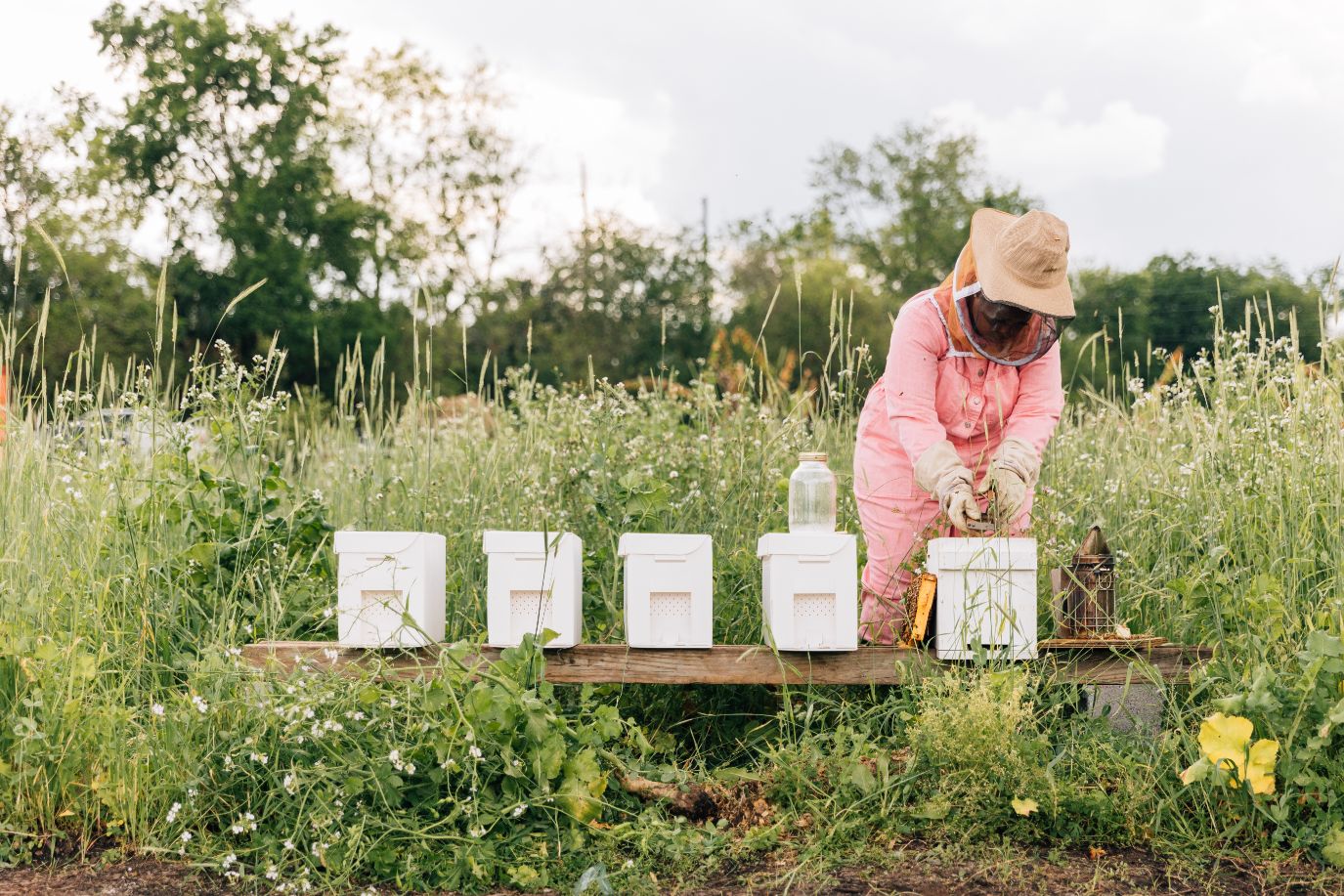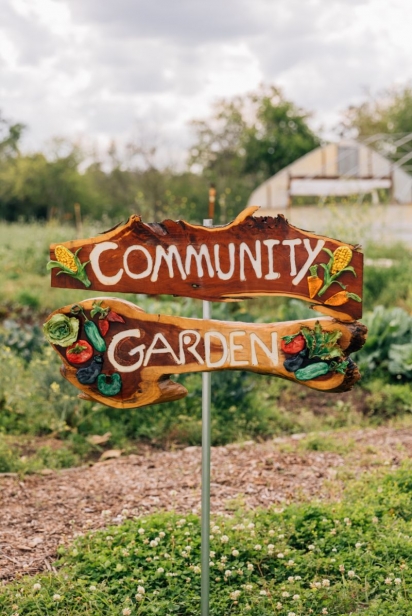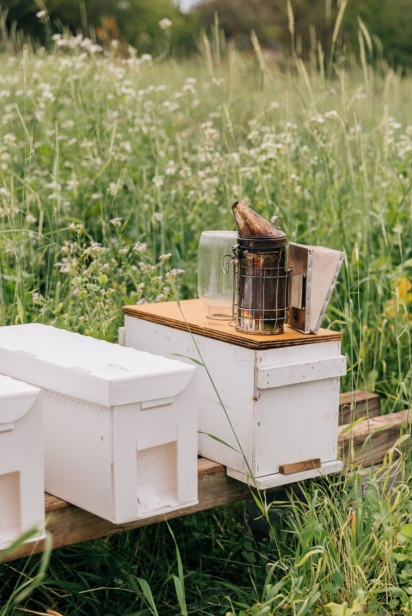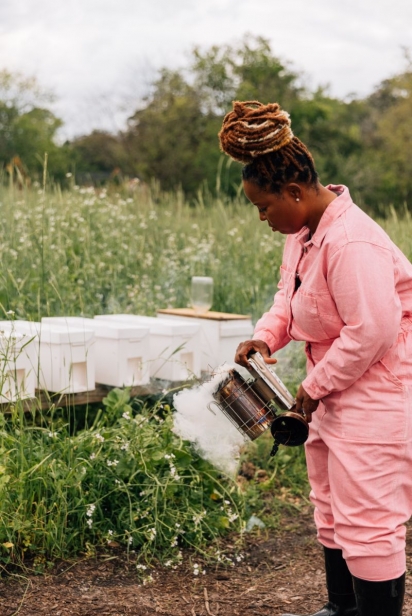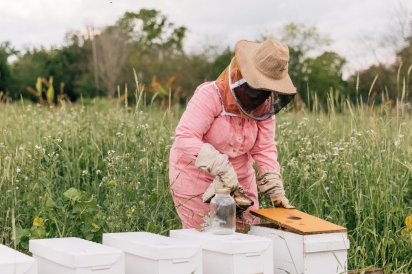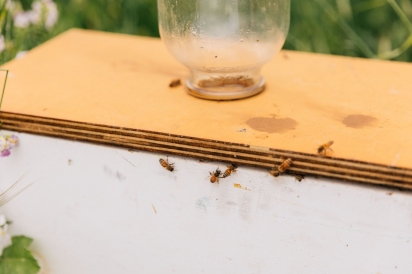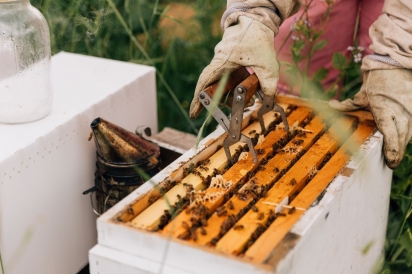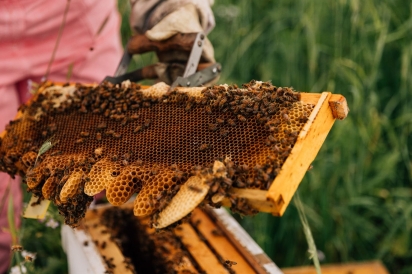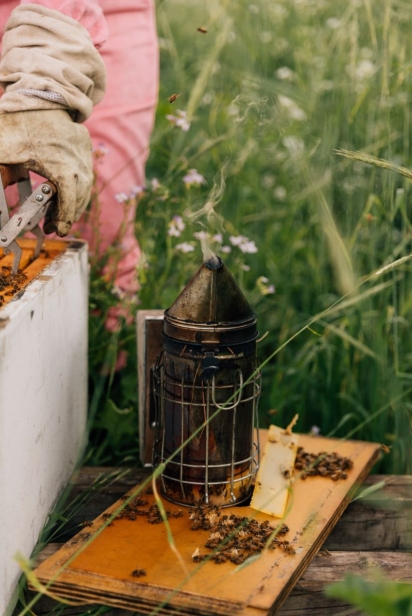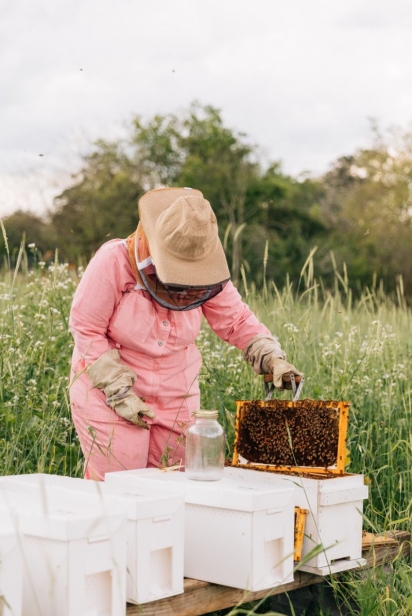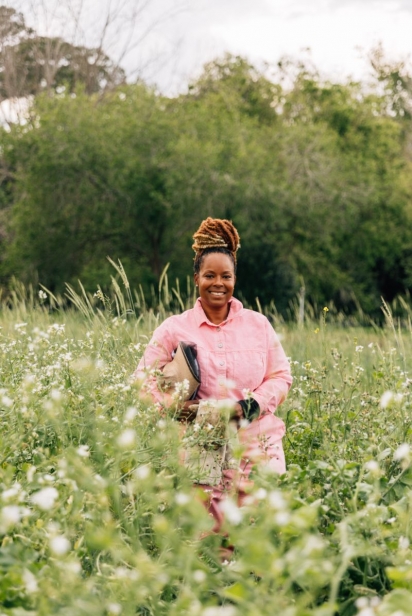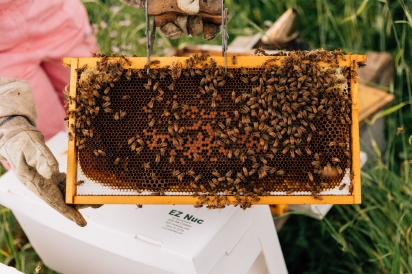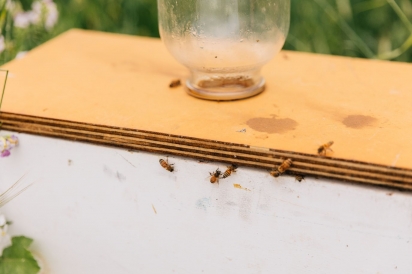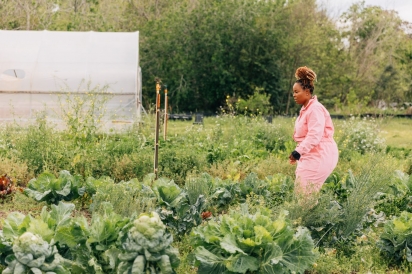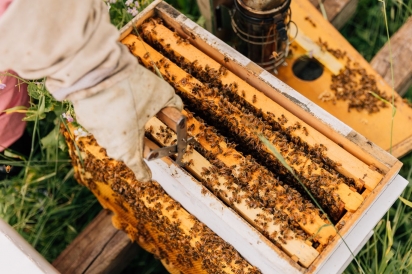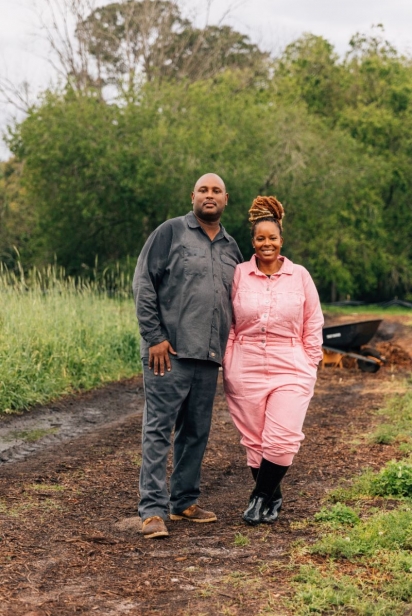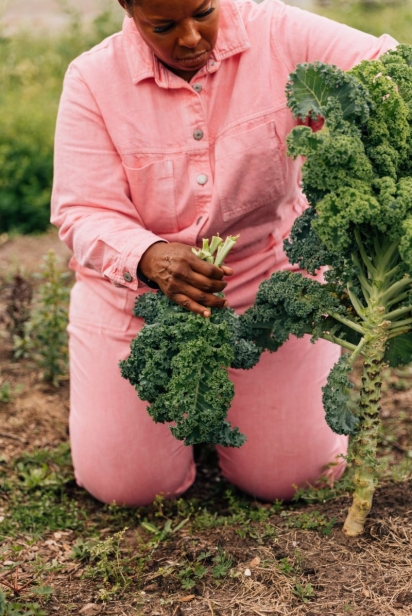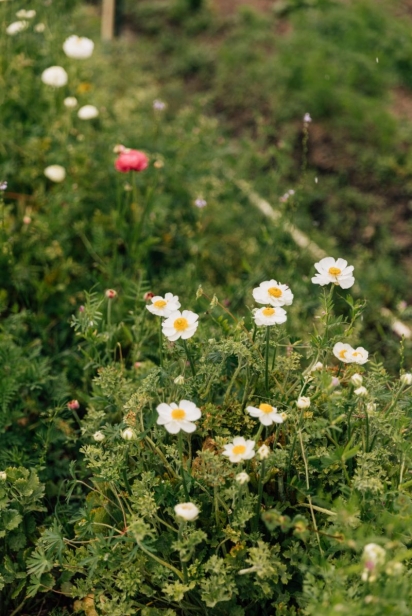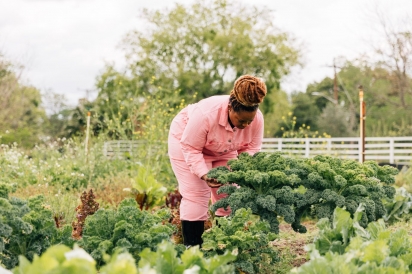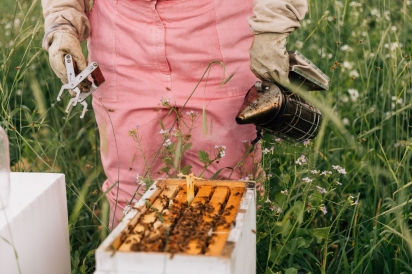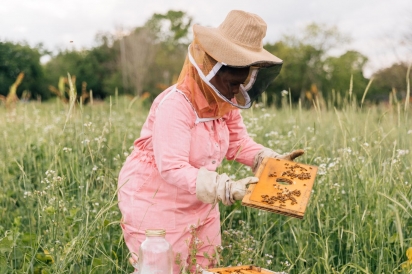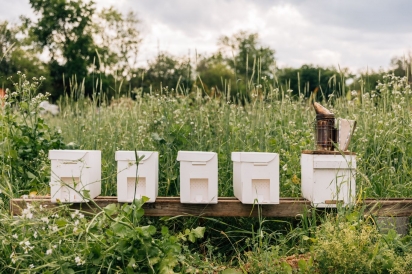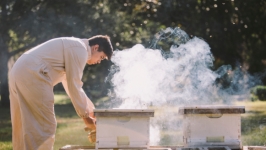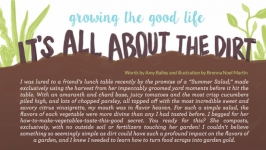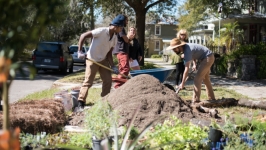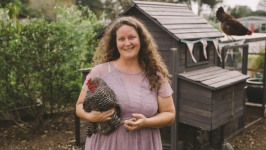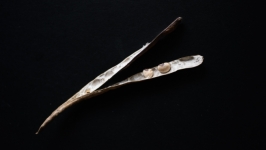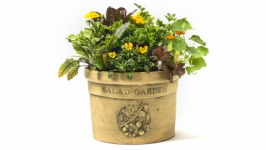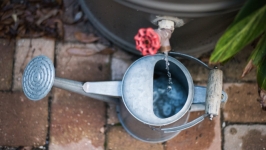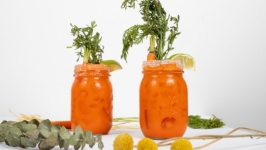The Herban Bee: Apiology for All
Perhaps it’s not surprising that a quest for the source of the most beautiful watermelon radishes resulted in the discovery of an urban beekeeping business. After learning that the radishes on a friend’s vegetable tray came from White Harvest Farms, I was determined to set eyes on their birthing place. Little did I know that the quest would lead me to a new farmers’ market and a new appreciation for collaboration in the agricultural community.
As part of their community outreach programs, White Harvest Farms, located in the historic Moncrief Springs neighborhood and operated by the Clara White Mission, holds volunteer mornings for those interested in learning more about the different agricultural activities at the farm. Visitors can get firsthand exposure to the source of the vegetables they sell at the on-property farmers’ market as well as meet and learn from the farmers.
The farm has partnered with Mika Hardison, owner of The Herban Bee, to set up and maintain beehives as part of their pollination program. Spend any amount of time with Hardison and her passion for urban beekeeping is evident; she is excited about what is happening on the farm and in the community.
A career in beekeeping was not exactly on Hardison’s mind when she and her family began to homestead in their backyard and grow their own food. She noticed that the yield from certain crops was inadequate. “So initially, I was doing a lot of hand pollination, which was time consuming and tedious,” says Hardison. “After I did that for a couple of years, I thought... yeah, no.” Wanting to find a solution that was more effective and less time consuming, she decided to look for better ways to pollinate her crops by tapping into the power of natural pollinators and set off to learn about beekeeping.
Hardison met up with local beekeeping groups where she shadowed beekeepers for a year and a half. During this time, she learned the basics, but she also received a firsthand look at the lack of inclusivity in the realm of beekeeping. While beekeepers were willing to provide information, the feeling of inclusion was still missing. “Beekeeping mirrors the agriculture industry,” Hardison says. “It’s a challenge for black beekeepers because we don’t own land. In the U.S., over 90% of farmlands or farms are owned by people of European descent, where 80% of the people who work the farm are African American or people of color. So, it just kind of mimics that. I found people to help me, so I don’t want to say that I didn’t find people to help. But I didn’t find it to be a group that just embraced me and mentored me,” says Hardison.
Where this might have discouraged others, it motivated Hardison to strive harder to pursue her goal of becoming a beekeeper. She took on three hives and created an apiary in her backyard. Her vegetable patch was the immediate beneficiary; with natural pollinators, her garden was transformed. So too was Hardison, as she launched The Herban Bee with the determination to change the narrative of agricultural accessibility. Using this experience, Hardison and her husband decided to start a business while helping the community around them.
The couple looked for opportunities to promote homesteading and the importance of personal sustainability. Using crops from her own garden, Hardison demonstrated how homesteading could not only feed a single family but could feed a community. Her goal was clear; she wanted to engage the community to help change the community. “I think it’s so important because we mimic what we see,” says Hardison. “So, if we in our neighborhoods, don’t have any representation of agriculture from people of color, then we don’t have kids saying, ‘Oh, one day I want to be a beekeeper, or I’m going to go to farming school, or I’m going to be a food scientist.’”
During this time, Hardison continued to grow The Herban Bee brand by providing honey to the community and educating on the power of pollination. Harvesting honey gave Hardison the ingredient to make natural cold remedies and soap as well as opportunities to hold workshops to teach others this skill. As her business began to grow, so too did the challenge of limited space in her backyard. With a surplus of bees, but no land to house them on, Hardison knew it was time to expand, so she set out to find a place to create a second apiary. The question of where to go was answered when Hardison saw a story on local news about White Harvest Farms and learned about the farm’s mission to serve a community lacking access to nutritious food.
“We had bees; we were already beekeepers. We saw the farm on the news, came up and introduced ourselves and asked them if they wanted to enter a partnership with their farm,” Hardison says. “They could benefit from having more pollinators. We could benefit from having land access.” In 2020 The Herban Bee and White Harvest Farms entered a partnership, providing the farm the pollinators needed for their crops to thrive, while allowing Hardison room to expand her apiary. Hardison became immersed in White Harvest’s mission of food security in the Moncrief Springs neighborhood, as it aligned with her mission to make agriculture more accessible in urban communities. She helped with the facilitation of a community garden on the property. During events at the farm, Hardison promotes their community outreach programs with information on how to get involved.
Taking what she learned from working with White Harvest Farms, Hardison expanded her apiary a second time, this time on Juicy Roots Farm, another step towards making beekeeping more accessible for the urban community. Along with the apiary expansion, she looked for opportunities to help others find an easier path to beekeeping, since she had faced many challenges. Through her involvement at White Harvest and Juicy Roots, Hardison saw there was a clear interest in agriculture when the resources were readily available, such as at a community garden. It seemed to Hardison that what was needed was a community apiary providing the space and resources that might otherwise be physically or economically unattainable.
Hardison decided to open her apiary at White Harvest for an internship opportunity to offer access to apiology. “It’s definitely a dream come true to be able to partner with White Harvest Farms and the Department of Agriculture to create a community apiary,” says Hardison. “So if you don’t own a farm or have land, whatever your circumstances are, you can be a beekeeper.” The seven-month program gives interns firsthand experience with tending beehives and provides them with the formal education and training needed to pursue their interest as a beekeeper. At the end of the season, interns leave with their bee suit, the honey they have helped produce and the motivation to continue to spread the knowledge of urban beekeeping.
What’s on the horizon for Hardison? Along with plans to enter more partnerships with local businesses, continued community outreach through her work at White Harvest and Juicy Roots is high on her to-do list.
Hardison’s passion for giving back and strengthening her community stems from the subjects that she studies. She will be the first to tell you that as a society, we can learn from bees. “Bees are what you call a super-organism, meaning that you have 40,000 bees in a hive that all have a specific function, but they’re concerned about the whole,” Hardison says. “What they do contributes to the benefit of their community. It’s bigger than them; although there are 40,000 individual bees, they work together as a unit. And they can’t survive alone. If you take one bee out of the colony, it can’t survive; they need each other.” A hobby that started with the intentions of promoting growth in a garden blossomed into a career that is providing growth in the community. Through her apiaries, Hardison hopes that the world of apiology becomes more inclusive and accessible to many more people.
Learn more about Mika Hardison and the Herban Bee at theherbanlife.org and follow on social media @theherbanbee.


